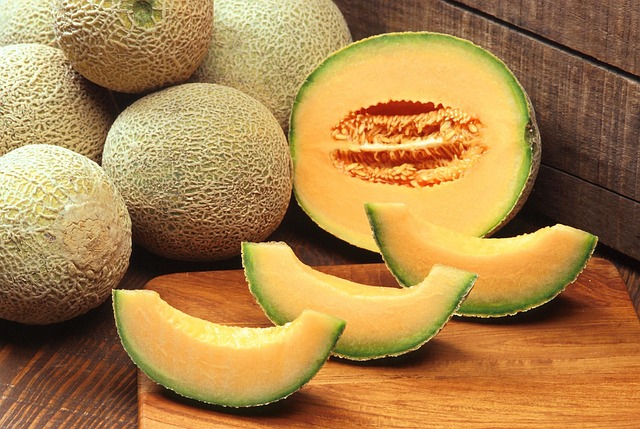
Key Points
Cantaloupe
Cantaloupe, also known as muskmelon or rock melon, is a refreshing and delicious fruit that belongs to the melon family. It is not only tasty but also incredibly nutritious, packed with vitamins, minerals, and antioxidants. In this article, we will explore the various health benefits of including cantaloupe in your regular diet.
Benefits of Cantaloupe
Rich in Nutrients
Cantaloupe is low in calories but high in essential nutrients. It is an excellent source of vitamin C, vitamin A, potassium, and folate. These nutrients play a crucial role in maintaining overall health and well-being.
Supports Hydration
With its high water content (about 90%), cantaloupe is a great fruit to help you stay hydrated, especially during hot weather or after a workout. Proper hydration is essential for many bodily functions, including digestion, circulation, and temperature regulation.
Boosts Immune System
Thanks to its high vitamin C content, cantaloupe can help boost your immune system. Vitamin C is an antioxidant that helps protect cells from damage and promotes the production of white blood cells, which are essential for fighting off infections.

Improves Digestion
Cantaloupe is a good source of dietary fiber, which is important for maintaining a healthy digestive system. Fiber helps regulate bowel movements, prevents constipation, and promotes a healthy gut microbiome.
Supports Eye Health
Cantaloupe is rich in vitamin A, which is essential for maintaining healthy vision. Vitamin A helps protect the surface of the eye (cornea) and is a component of Rhodesia, a protein that helps you see in low-light conditions.
Promotes Skin Health
The vitamin C and vitamin A content in cantaloupe can help promote healthy skin. Vitamin C is involved in the production of collagen, a protein that helps maintain skin elasticity, while vitamin A helps repair skin tissues and reduce signs of aging.
Nutrition
Here’s a basic nutrition table for cantaloupe, based on a typical serving size of 1 cup (about 177 grams) of diced cantaloupe:
- Calories: 60
- Protein: 1.5 grams
- Fat: 0.3 grams
- Carbohydrates: 14.4 grams
- Dietary Fiber: 1.6 grams
- Sugars: 13.9 grams
- Vitamin A: 5,415 IU (109% DV)
- Vitamin C: 65.9 mg (110% DV)
- Vitamin K: 3.7 mcg (5% DV)
- Folate: 31.5 mcg (8% DV)
- Potassium: 473 mg (14% DV)
- Magnesium: 18.7 mg (5% DV)
Cantaloupe Vs Honeydew
Here’s a comparison table between cantaloupe and honeydew melons based on a standard serving size of 1 cup, diced (about 177 grams) for easier comparison:
| Nutrient | Cantaloupe | Honeydew |
|---|---|---|
| Calories | 60 | 64 |
| Protein | 1.5 grams | 1 gram |
| Fat | 0.3 grams | 0.2 grams |
| Carbohydrates | 14.4 grams | 16.4 grams |
| Dietary Fiber | 1.6 grams | 1.4 grams |
| Sugars | 13.9 grams | 14.4 grams |
| Vitamin A | 5,415 IU (109% DV) | 67 IU (1% DV) |
| Vitamin C | 65.9 mg (110% DV) | 57.3 mg (95% DV) |
| Vitamin K | 3.7 mcg (5% DV) | 3.6 mcg (5% DV) |
| Folate | 31.5 mcg (8% DV) | 35.1 mcg (9% DV) |
| Potassium | 473 mg (14% DV) | 404 mg (12% DV) |
| Magnesium | 18.7 mg (5% DV) | 15.7 mg (4% DV) |
A Quick Review
Incorporating cantaloupe into your regular diet can provide numerous health benefits, including improved digestion, hydration, immune support, and better skin and eye health. So next time you’re looking for a refreshing and nutritious snack, consider adding some cantaloupe to your plate.
